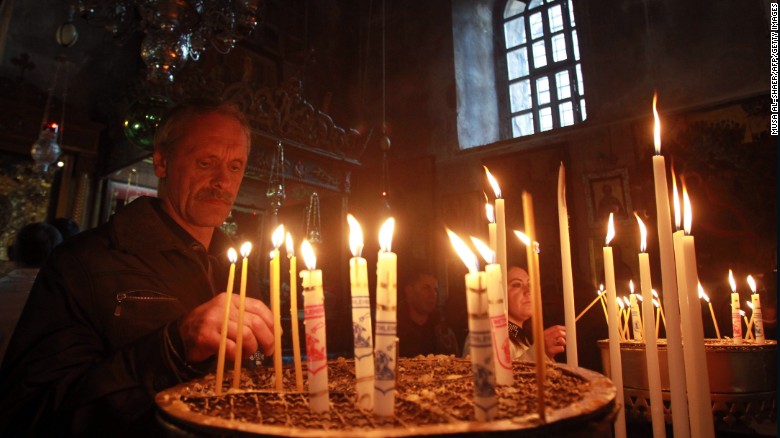Amid killings and kidnappings, can Christianity survive in the Middle East?

Christians light candles last month in the Church of the Nativity in the West Bank town of Bethlehem, the birthplace of Jesus.
Story highlights
- Christianity has long roots in the Middle East, starting with the birth of Jesus
- Expert: Their numbers have fallen in recent decades and should continue to fall
- There are exceptions, like migrant workers flooding Gulf states like Saudi Arabia
(CNN)Christianity
was born in Bethlehem, in what's now the West Bank. It took root among
people like the Assyrians, who flourished in ancient Mesopotamia. It
soon found a home in places like modern-day Turkey.
In other words, Christianity traces its past squarely to the Middle East.
But do Christians have a future there?
Recent headlines provide ample evidence for skepticism. It's hard to ignore the depravity of ISIS beheading 21 Egyptian Christians on a beach in Libya. Nor can one shake off stories of women and children among the 262 Christians captured by ISIS in Syria, one of several horrors faced by Christians in that nation and neighboring Iraq.

Christians risk lives retracing Jesus' footsteps 03:11
They're
not just feeling the heat from Islamic extremists: Just this week,
police in Jerusalem said they suspected radical right-wing Israelis were
to blame for defacing a Greek Orthodox seminary in Jerusalem with slurs maligning Jesus.
All
this strain, all this chaos has shrunk the percentage of the Middle
East's once-sizable population of openly practicing Christians.
While
no one is saying what's happening -- especially given the savagery of
ISIS -- isn't alarming, that doesn't make it surprising. The Middle East
has changed a lot since the first millennium A.D. for Christians. It
has also changed a lot over the past century: The percentage of
Christians relative to the Mideast's overall population has gone from
13.6% in 1910 to 4.2% in 2010, and it's expected to drop even further,
according to religious demographers Todd Johnson and Gina Zurlo.
"What
we're seeing right now," said Baylor University historical theologian
Philip Jenkins, "is the latest phase of something that has been going
for 100 years, pretty much."
No comments:
Post a Comment